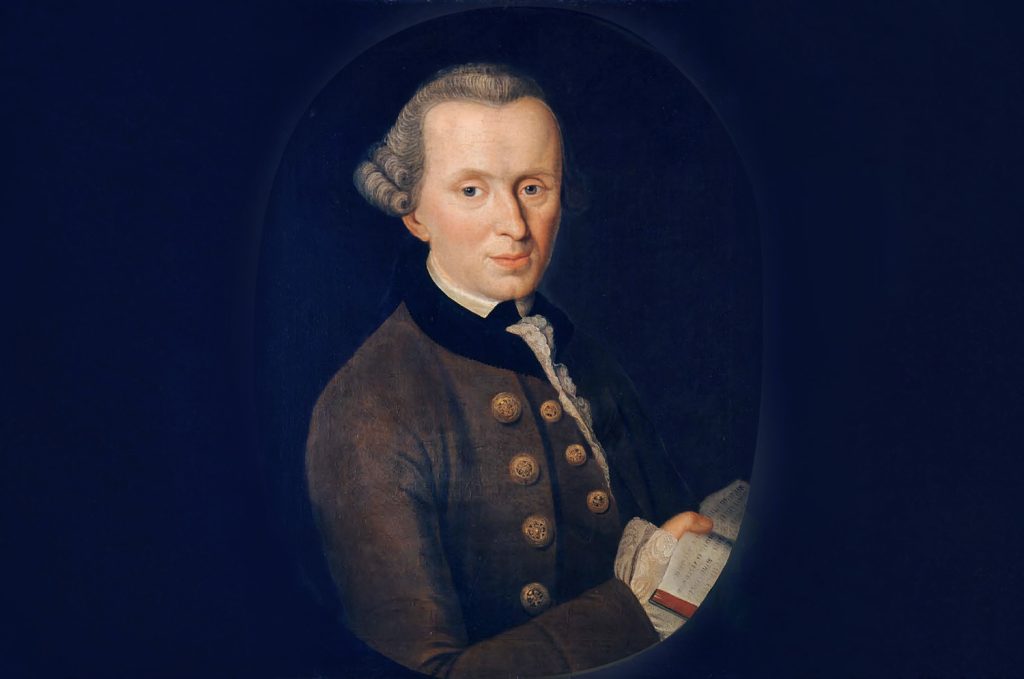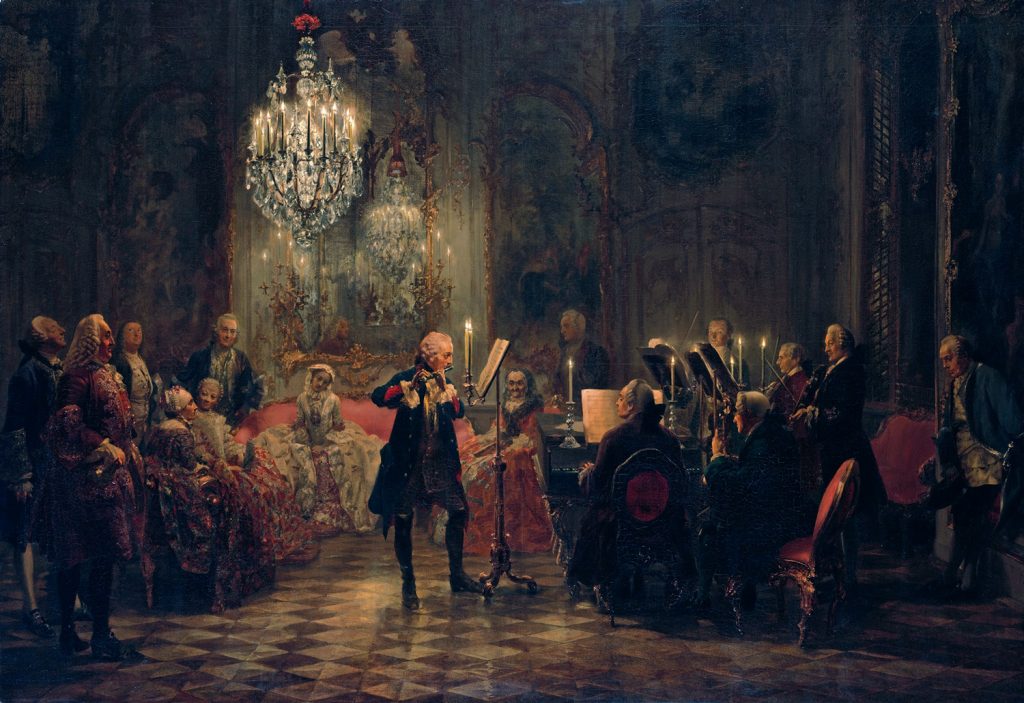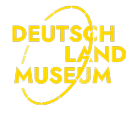
The Enlightenment
1740
The Enlightenment
Reason versus religious dogma
Transforming the fundamental approach to key questions of human existence, the Age of Enlightenment produced a number of social revolutions. Whilst the vast majority of people had previously accepted traditional Church teaching and the social systems which they buttressed, philosophers and social theorists now focussed on human rationality as the touchstone of morality and social relations. The new answers developed to old questions gave rise to revolutionary doctrines of human and civil rights that continue to be important to this day.
The Age of Enlightenment in Germany
18th century Germany developed into a centre of Enlightenment thinking. The fundamental feature of this revolutionary new movement was the priority attached to human reason. This can best be summarized by the dictum of the most significant Enlightenment thinker, the German Immanuel Kant: „Dare to know! Have the courage to use your own intellect!”
This philosophical revolution produced what is now viewed as the golden age of German thinking and poetry. Amongst the philosophers, Kant was joined by such luminaries as Moses Mendelssohn and Gottfried-Wilhelm Leibniz. Their work inspired major figures of German literature such as Gotthold-Ephraim Lessing and the fathers of Weimar Classicism, Johann Wolfgang Goethe, Friedrich Schiller and Christoph Martin Wieland.

Immanuel Kant is considered as the most important German philosopher of the Enlightenment Oil painting by Johann Gottlieb Becker, 1768 (source: Schiller National Museum via Wikimedia Commons)
The Enlightenment laid the foundations for profound social and political change. A new understanding of human and civil rights spread amongst the educated classes of the German lands. These middle classes were especially attracted to the ideas of individual liberty and popular sovereignty.

A versatile monarch: Frederick the Great was an enlightened statesman, a successful general and a first-class flute player Oil painting by Adolph Menzel, 1850–1852 (source: Alte Nationalgalerie via Wikimedia Commons)
Frederick the Great and Prussia
The Age of Enlightenment also marked the rise of Prussia as a major European power. After ascending to the throne in 1740, Frederick II introduced a number of important economic and political reforms that stabilized Prussia and made possible his policy of aggressive territorial expansion. As an enlightened monarch, Frederick the Great, as he was known even during his lifetime, was an advocate of religious tolerance. Berlin developed into an important centre of the European Enlightenment during his reign.
Share article
1740
Frederick II was crowned King in Prussia in 1740. A comprehensive programme of social and economic reform enabled the enlightened monarch to transform Prussia into a major European military power.
Epochen im Museum

About the Deutschlandmuseum
An immersive and innovative experience museum about 2000 years of German history
The forest of the Varus Battle
Knowledge is just one click away
Embark on a journey through 2,000 years of German history. One country, 12 epochs. You’re invited to experience the Epoch Weeks at the Deutschlandmuseum. Every week we showcase an epoch that is also on display in the Deutschlandmuseum.
FAQ
Although the key ideas that fuelled the Enlightenment emerged at the end of the 17th century, the high point of developed Enlightenment thinking was the 18th century.
Berlin and Potsdam developed into important centres of Enlightenment thought, primarily due to the presence of immigrant French Huguenots – amongst them numerous intellectuals. As an enlightened absolutist, Frederick the Great sought to reform the state and established Prussia, and Berlin in particular, as a centre of German Enlightenment thought.
The central feature of the Enlightenment was the demand to follow reason. Kant’s dictum “Have the courage to use your own intellect!” developed into the touchstone of Enlightened thought. Enlightenment ideas about individual liberty and popular sovereignty exerted a major influence on a range of social and political developments.


